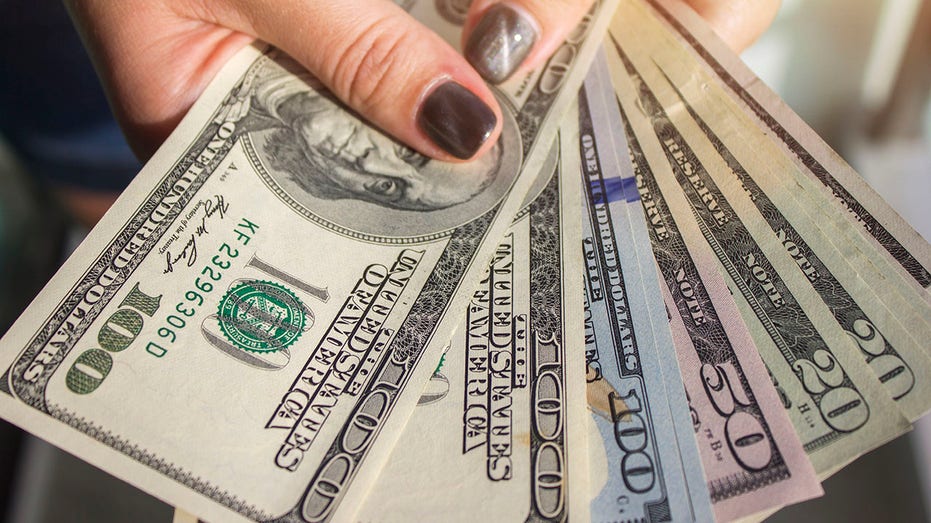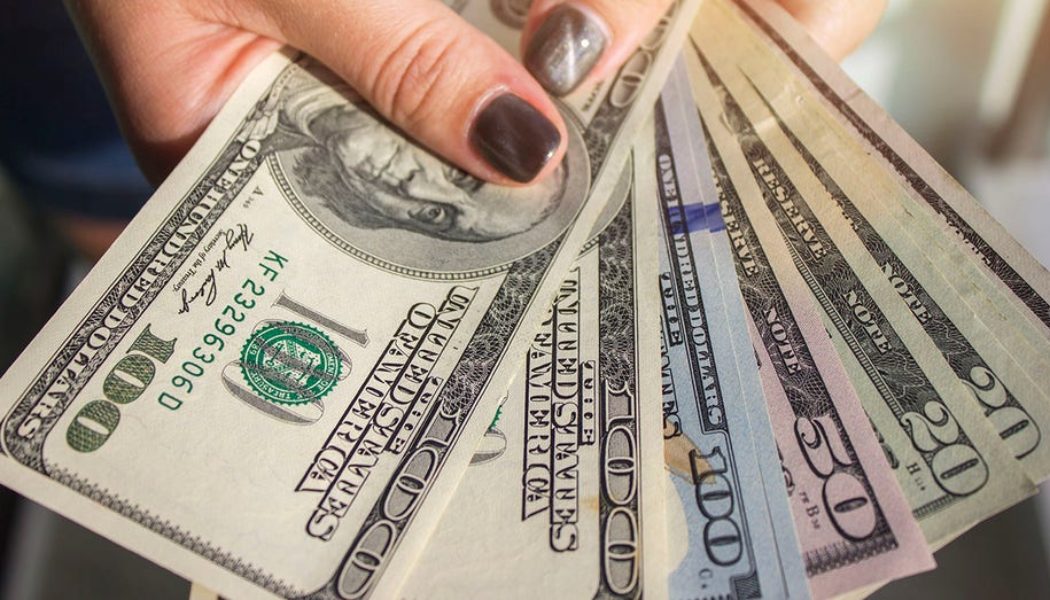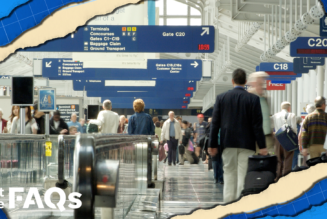GasBuddy head of petroleum analysis Patrick de Haan shares his forecast for gas prices ahead of busy summer travel.
It can be very exciting to receive an email, direct-mail letter or phone call letting you know you’ve won a “free cruise” or an “all-expenses-paid-vacation to a tropical island.”
These trip offers, unfortunately, are often nothing but a scam.
And even beyond these fake travel opportunities, there are other ways scammers are trying to snatch your hard-earned vacation dollars, such as through fraudulent or misleading travel websites and false vacation rental listings.
AMID SURGING CRUISE SHIP ILLNESSES, EXPERTS SHARE WAYS TO STAY SAFE ON THE HIGH SEAS
There were over 30,000 complaints filed by American travelers within the last several years against such travel scams, according to the Better Business Bureau (BBB).
Also, there were more than 10,000 negative BBB reviews outlining consumer issues — everything from not receiving travel services that people paid for, to receiving unsolicited and unscrupulous trip offers.

With vacation scams and schemes on the rise, experts shared the top red flags to watch for as consumers book hard-earned trips and getaways. (iStock / iStock)
Fox News Digital reached out to two experts about red flags regarding these fraudsters amid the rise of vacation scams and schemes today.
‘Prime opportunity for scammers’
A summer vacation can be the highlight of the year for many Americans. It may also be one of the costliest planned expenses during the year.
“This makes it a prime opportunity for scammers to pounce,” cautioned Dan Cusick, a fraud and claim executive with Wells Fargo Bank, N.A., in Charlotte, North Carolina.
HERE ARE THE TOP US CITIES FOR A ‘STAYCATION’ THIS SUMMER AND WHAT TO DO WHILE THERE
“Bad actors look for key seasons, like summer vacations, to exploit your excitement and ‘pickpocket’ your cash in different ways.”
Here are five top scams today to know about — and what to do about them.
5 top scams to know about today
1. Fake travel websites
Consumers need to be on the lookout for “spoofing”— false information or fake travel websites disguised as legitimate, trusted or known sources, said Cusick.

Travel websites may “look legit, and they might offer attractive deals on flights, hotels and vacation packages, but when you make a payment, your money may go straight into the scammers’ pockets.” (iStock / iStock)
“These travel websites look legit, and they might offer attractive deals on flights, hotels and vacation packages, but when you make a payment, your money may go straight into the scammers’ pockets,” Cusick told Fox News Digital.
Also, be cautious about third-party agents.
ONLINE PASSPORT RENEWAL IS BACK — HERE’S HOW TO DO IT
“Scammers may say they’ll handle the booking plans and collect your payment for the trip, and then victims of these scams show up at the airport for a flight that doesn’t exist or at a hotel that was never booked,” said Cusick.
2. Suspicious payment requests
Another scam indicator? Suspicious payment requests.
Does the travel site demand that you “book immediately” and require an odd form of payment? It’s likely a scam.
“If a purported travel website asks for payment in the form of a gift card or wire transfer, that’s a definite red flag that you’re dealing with a scammer,” said Cusick.

“Scammers may say they’ll handle the booking plans and collect your payment for the trip, and then victims of these scams show up at the airport for a flight that doesn’t exist.” (Lindsey Nicholson/UCG/Universal Images Group / Brittany Murray/MediaNews Group/Long Beach Press-Telegram via Getty Images / Getty Images)
And don’t be strong-armed to book — that’s another notable red flag.
If the travel site demands that you “book immediately” and requires an odd form of payment to secure a great price, it’s likely a scam, indicated Cusick.
“An excellent rule of thumb is that if a travel deal seems too good to be true, and the cost is dramatically less than that of other competitors, it’s a red flag that it could be a scam,” he said.
3. ‘Disappearing vacation’ rentals
Scammers capitalize on the popularity of vacation properties rented on well-known online marketplaces such as Airbnb and VRBO, or social media sites by offering properties online that don’t exist or don’t belong to them, Cusick said.
DISNEY SPENDING: NEARLY 50% OF PARENTS WITH YOUNG CHILDREN TAKE ON DEBT FOR THEME PARK TRIP
“They may pressure you to send an immediate deposit,” he said.
“Then ultimately, you’re out that money and left with no rental.”

Some scammers capitalize on the popularity of vacation properties rented on well-known online marketplaces. Above, a gorgeous property in Hawaii. (Vrbo / Fox News)
When it comes to disappearing vacation rental scams, Cusick noted that consumers should be on the lookout for the following red flags:
- Property listings that require you leave the website to make a payment on another unsecured platform or that request immediate payment in an odd payment form — for example, crypto, a gift card or a wire transfer
- Pressure from the “landlord” to pay immediately or lose the property
- Request that you wire money to secure the booking
4. ‘You’ve-just-won-a-free-vacation’ notices
Prize scams can involve fraudsters contacting you to say that you’ve won a free vacation or prize.
“Scammers may say you are required to pay a fee to receive that ‘prize’ or to pay for taxes or fees upfront,” said Cusick.
TOP SUMMER TRAVEL DESTINATIONS FOR 2024: THESE INTERNATIONAL SPOTS WERE THE MOST SEARCHED
“They may ask you to send that money directly or ask for direct account information to collect fees, and never send the prize.”
The red flags consumers should be on the lookout for regarding prize scams include the following:
- Your free vacation prize notice arrived via mail and was sent at a bulk mail rate.
- You have to pay to collect your free vacation prize.
- You receive an “act-now” offer. Scammers tell you the free vacation is a “limited-time offer,” pressuring you to act quickly to claim your prize so that you don’t have time to think and assess the situation, Cusick said.
5. Unknown travel companies
“If you’ve never heard of the travel company before, do your research,” cautioned Sally French, travel expert with NerdWallet in San Francisco.

Avoid travel bookings if you haven’t read actual traveler reviews of the product or service, said one travel expert. (iStock / iStock)
“Look for reviews online, check their website for legitimacy, and see if they are registered with a travel industry association.”
In general, she also recommends avoiding travel bookings if you haven’t read actual traveler reviews of the product or service.
Best overall practices to avoid travel scams
Your common sense plays the most important role in being able to tell if something sounds too good to be true.
For more Lifestyle articles, visit www.foxbusiness.com/lifestyle
In addition, Wells Fargo shared some other tips.
Know and trust the intended recipient. Don’t send money to people you don’t know or can’t confirm as legitimate.
Avoiding clicking on links from an unsolicited email, text messages or online ads. This could be a “phishing” ploy and could be a way for scammers to install malware on your device or send you to a fraudulent site.

“Be on the lookout for any charges you don’t recognize so you can dispute them as quickly as possible,” said one expert. (iStock / iStock)
Use caution when scanning QR codes to pay for items or services. While these codes can be a convenient feature used by legitimate businesses or sellers, be aware that scammers may use QR codes to send you to a malicious site, or fake website where they can steal your payment information.
What if you do fall victim to a travel scheme?
If you do become the victim of a travel scam or scheme, immediate action should help control your losses.
CLICK HERE TO SIGN UP FOR OUR LIFESTYLE NEWSLETTER
“First, report any card theft to your bank or credit card issuer,” said French with NerdWallet. “They’ll be able to cancel the card before the thief does any more damage.”
Also, she said that when traveling, it’s also wise to have a backup credit card.
GET FOX BUSINESS ON THE GO BY CLICKING HERE
“If you do have to cancel one card, you still have something to get through the remainder of your trip,” French said.
Furthermore, especially in the days following your vacation, continue to monitor your bank statements.
“Be on the lookout for any charges you don’t recognize so you can dispute them as quickly as possible,” French advised.









